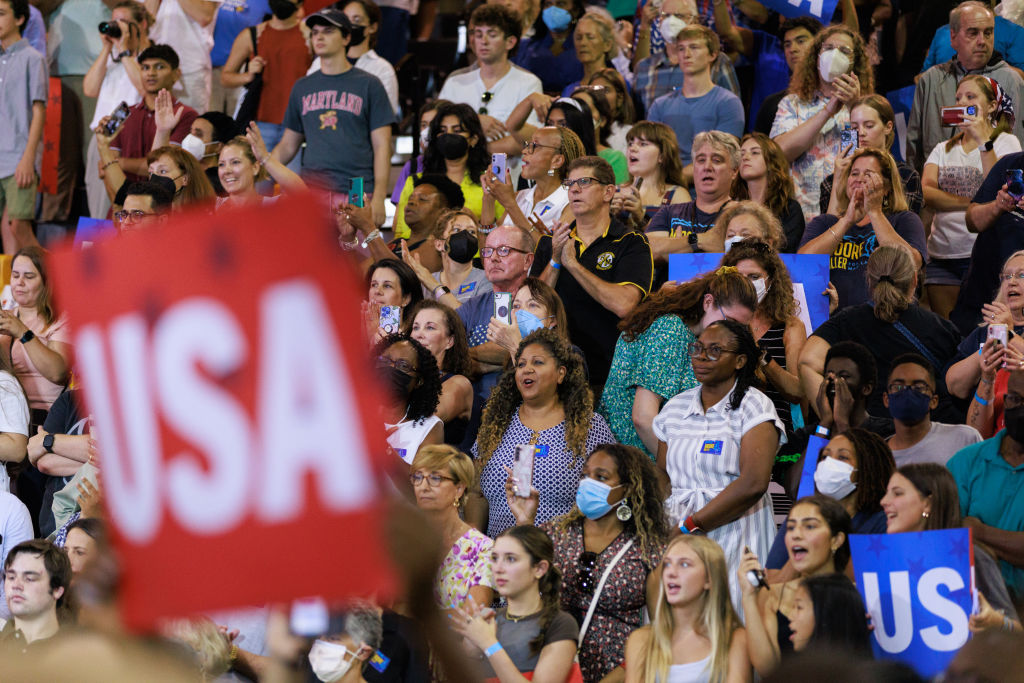File this one under “don’t read too much into opinion polls.” As America approaches the November midterms, voter enthusiasm is on the minds of everyone who is taking an interest, either professionally or otherwise, and two recent polls suggest that both Democrats and Republicans have an advantage going into this year’s elections. Sounds confusing, right? It is, but why? Perhaps the devil is in the details – or maybe there is no easy way to interpret or explain such discrepancies without exhaustive studies of the results. It might just be that, when all is said and done, politics in today’s America – and voters’ attitudes toward them – just don’t make a whole lot of sense. Lesson one of poll-watching, however, is always to read the polls rather than trust how the media report them.
 Both surveys in question were extensive, asking participants questions on a whole range of issues, from Russian President Vladimir Putin’s favorability to the FBI raid on Mar-a-Lago, to how much freedom of speech Americans believe Chinese citizens enjoy.
Both surveys in question were extensive, asking participants questions on a whole range of issues, from Russian President Vladimir Putin’s favorability to the FBI raid on Mar-a-Lago, to how much freedom of speech Americans believe Chinese citizens enjoy.
A Yahoo News/YouGov poll, conducted between Sept. 2 and Sept. 6, 2022, surveyed 1,634 US adults. It was reported by both Yahoo News and the Washington Examiner as showing that Democrats had an advantage over Republicans, in terms of those poll takers who claim they “definitely” will vote in November. Meanwhile, an Economist/YouGov survey of 1,500 US adults – conducted Sept. 3-6, 2022 – apparently gives Republicans the edge in voter enthusiasm for the November midterms.
In both cases, the pollsters surveyed random samples of the population, so neither poll can be said to have oversampled either Republican or Democrat voters. Even delving into the various answers given to a wide range of questions does not provide any sure way to determine whether most participants leaned either left or right, so the results can be taken at face value – for what that’s worth.
Yahoo News/YouGov

(Photo by Bryan Dozier/Anadolu Agency via Getty Images)
In this poll, 39% of respondents said that, if congressional elections were held today, they would vote for the Democratic Party candidate where they lived. By contrast, 34% would vote for the Republican. Among registered voters – which is generally considered the more reliable indicator – 40% would choose the Republican candidate and 48% the Democrat. When asked, “How likely is it that you will vote in the 2022 elections for U.S. Congress this year?” 67% of participants who identified as Republican said they “definitely will vote.” That compares to 62% of Democrats and 46% of those who identified as Independents. Both Yahoo News and the Washington Examiner published reports on this survey under headlines that suggested Democrats have the advantage – but do they? A lot of pollsters and poll-watchers would say yes, because it’s what the registered voters say that counts. But there’s that enthusiasm factor.
On an interesting side note, 59% of registered voters thought Joe Biden should not run again in 2024 and 60% said the same about Donald Trump. Fifty-two percent of respondents disapproved of how Mr. Biden is doing his job, against 40% who approved.
Economist/YouGov
This survey showed 67% of participants who identify as Republicans saying they “definitely will vote” in the November midterms, versus 60% of Democrats who said the same. Among registered voters, 38% said they would vote for the Republican candidate if the congressional elections were held today, while 44% would vote for the Democratic Party candidate. Of note is that, in response to the generic congressional vote question, participants who identified as Independent favored the Republican candidate over the Democrat, 36% to 29%.
 Fifty-one percent of respondents to this survey disapproved of the job Biden is doing, while 41% approved.
Fifty-one percent of respondents to this survey disapproved of the job Biden is doing, while 41% approved.
How Do the November Midterms Shake Out?
Do participants in political surveys tell pollsters their real intentions or do they give what they think are the “correct” or “acceptable” answers? Are the responses from registered voters more reliable than the wider group? And what about the Independents, since those voters now constitute a majority? One cannot help but remember that, in the runup to the 2016 presidential election, almost all polls indicated that Trump had virtually no chance of winning – so can we rely on any of these surveys to give us a picture of how the midterms shake out? With two months still to go – and that famous, or infamous, October surprise always waiting in the wings – it is perhaps not worth putting a whole lot of faith in most polls. These two recent offerings give Democrats the edge in the generic congressional ballot, but indicate Republicans have the advantage in terms of voter enthusiasm – and both also show Independents favoring the GOP and not thrilled at all with Mr. Biden. Then again, it could be an entirely different story three weeks from now, from a different polling organization and reported by different media outlets. Stay tuned – and try not to let your head spin.



